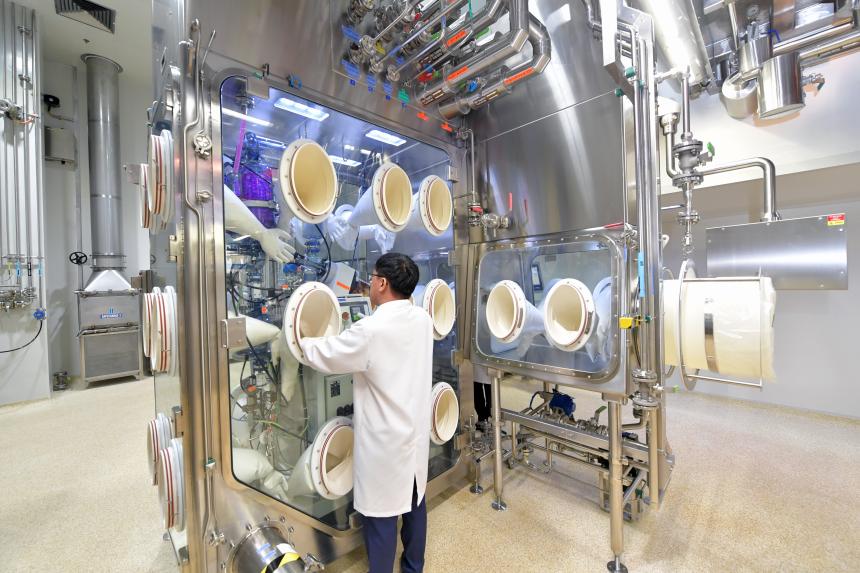SINGAPORE - GSK officially opened its first high-potency manufacturing and test facility in Singapore on Thursday, with the capability to manufacture highly potent components for cancer treatments.
Located in Jurong, the $44 million high-potency facility is also the first in Singapore, strengthening the site’s capabilities to meet increasing demand for oncology treatments around the world. GSK has 36 manufacturing sites globally, with three located in Singapore.
Currently, the facility is used to produce a key ingredient – a cytotoxic agent in antibody drug conjugates (ADCs) – to treat a form of blood cancer called multiple myeloma. This is a type of bone marrow cancer that affects several parts of the body, such as the spine and skull.
The cytotoxic agent is one of three components needed in the development of ADCs – a form of targeted therapy in cancer treatment. Unlike chemotherapy, ADCs target and kill tumour cells while sparing healthy cells.
Just two or three highly skilled operators are needed to keep the facility running at any one time.
Stressing the importance of such innovative oncology treatments, Ms Jacqueline Poh, managing director of the Economic Development Board, said in her opening address: “We are facing rising incidences of cancer worldwide, which necessitates innovative treatments that are more efficacious and precise, with fewer side effects.
“This project is also significant due to the local spin-offs generated. Through this investment, GSK will train local employees in highly specialised areas such as high-containment manufacturing... These capabilities will position the Jurong site and Singapore well for further investments.”
The facility will also allow GSK to develop and launch new products more quickly.
Calling the facility a strategic investment to build future capability, Mr Regis Simard, GSK’s president of global supply chain, said: “This facility adds to our capability to manufacture future products that are currently in development and not yet on the market. The volume manufactured may be small, but the impact is huge. These drugs are what patients get when there are few options left.”
Though these drugs do not contribute significantly to GSK’s overall drug sales, it remains important for GSK to have the technology and be equipped to produce medicines of the future, Mr Simard added.
“We didn’t have this facility before, but we have it now. This product we have is the first to be manufactured, but other products are in the pipeline.”
Chemotherapy is used as the first line of treatment for multiple myeloma. However, some patients may still experience disease progression despite multiple sessions of chemotherapy. They can then turn to ADCs.
An ADC comprises three parts – a cytotoxic agent that kills the cancer cells, an antibody that recognises and attaches to the cancer cells, and a linker that joins the antibody to the cytotoxic agent.
Given the highly potent cytotoxic components, the facility is equipped with advanced features such as automated operations, exceptional containment capabilities and strict cross-contamination controls.
The new facility is located within the GSK Jurong site.


